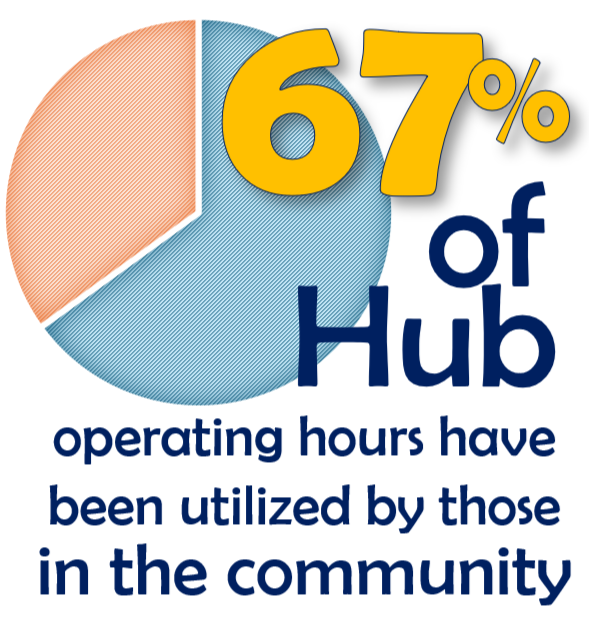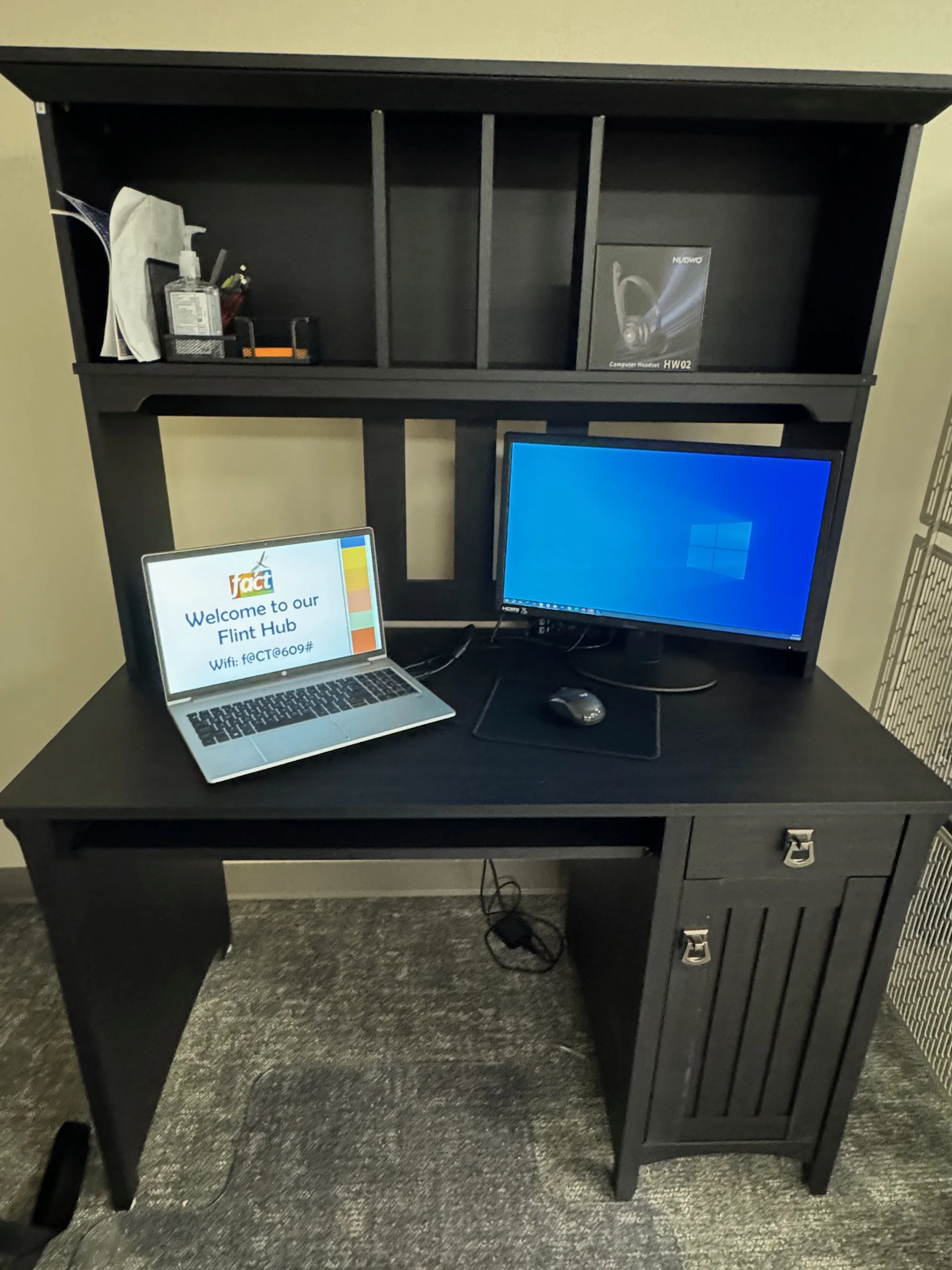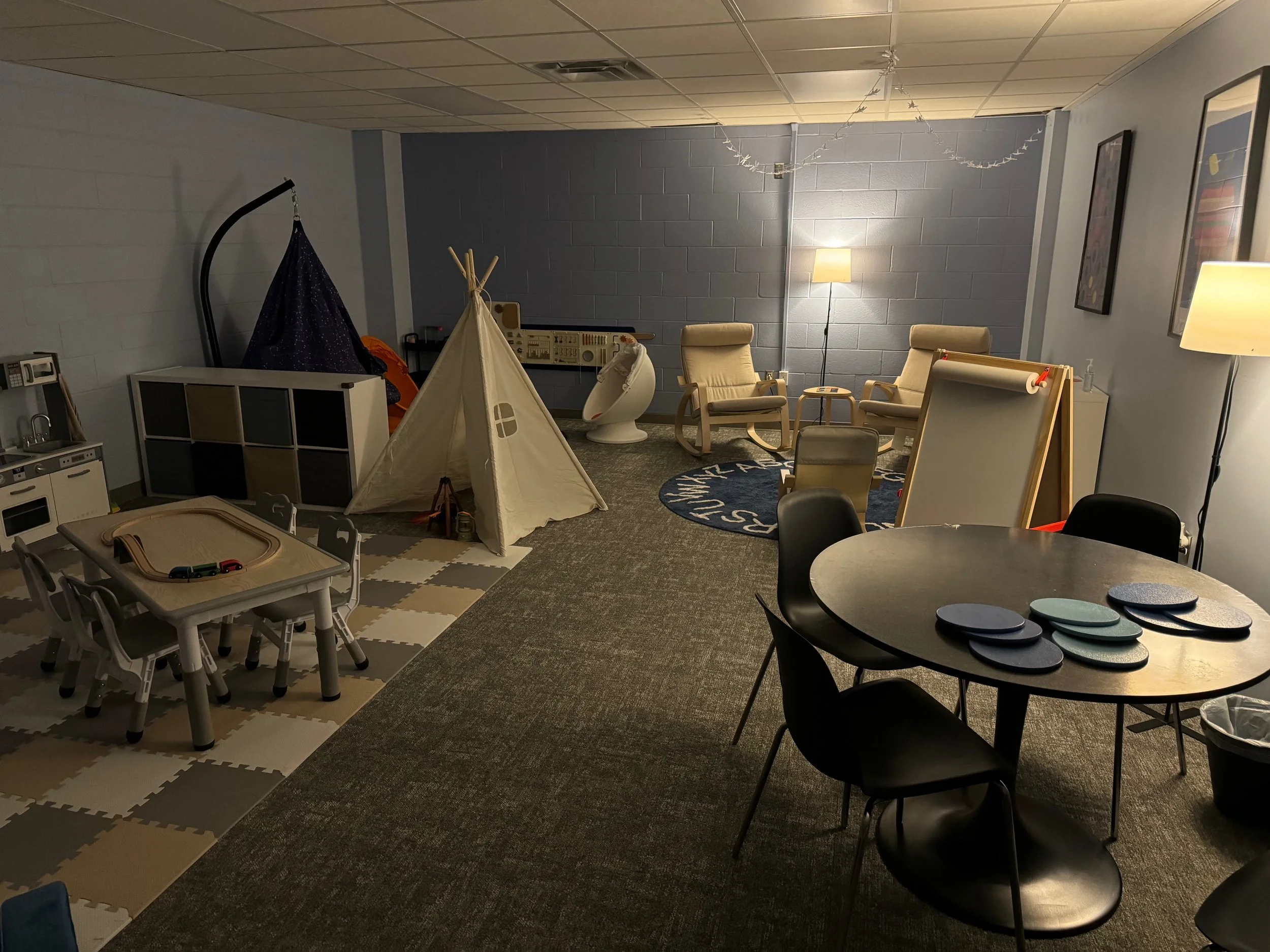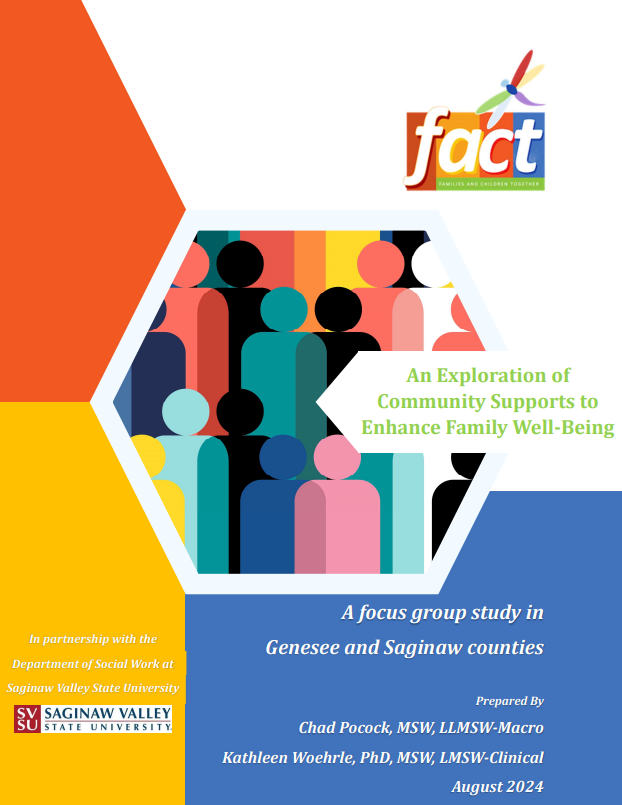
PROVEN PATHS: CBC Prevention Insights & Impact
Similar CBC Prevention programs have proven results in other parts of the country and we are watching closely
CONSIDER OUR HUB’S COMMUNITY IMPACT IN OUR FIRST 30 DAYS:
FACT Service Hubs provide a location for families to access services from their providers, connect with others in the community, and enjoy time amongst themselves in a warm, inviting area. Our Hub serve as an extension by offering spaces that are open to the community.
Community Members
utilized the Service Hub
in our first month of operation
The FACT Hub increased the accessibility and served as a meeting option for agencies looking for an alternative location for parent visits, family advisory groups, staff trainings and workspaces for professionals.
TRAUMA-INFORMED DESIGN
The FACT Service Hub, designed with trauma-informed principles, fosters collaboration, support, and connection. Soft lighting and calming colors create a welcoming, safe space for families.
REMOTE OFFICE SPACE
PARENT CAFES
RESOURCE DISTRIBUTION
TRAINING
CHILDREN’S PLAYTIME
FAMILY VISITATION
ENVISIONING GROUPS
STAFF MEETINGS
Results monitored by SVSU
The Saginaw Valley State University School of Social Work has agreed to measure the results of Families and Children Together's Community-Based Care (CBC) project. With a commitment to evidence-based practices, the school recognizes the importance of evaluating the impact of interventions for vulnerable families. By conducting thorough assessments and collecting data, the university aims to shed light on the effectiveness of FACT's CBC project in improving the well-being and outcomes of the families they serve. Through rigorous analysis and thoughtful evaluation, the Saginaw Valley State University School of Social Work will contribute to the ongoing improvement and development of the CBC project, ultimately strengthening the support provided to families in need.
An
Exploration
of Community Supports to
Enhance Family Well-Being
2024
We would like to thank you for helping us with FACT's first focus group project with the communities we serve. Throughout this project, we connected with passionate community members and learned from our very own families. Each focus group was extremely valuable and helped us understand more about what our communities need to stay strong, supported, and healthy.
Alongside our partners at Saginaw Valley State University, we analyzed our data by triangulating current practices in our field, the dimensions of wellness, and the protective factors of families. Our participants spoke overwhelmingly of being involved with their community and feeling heard and connected with their providers. The full report can be viewed here: LINK
Our next project is set to begin this month with a focus on protective factors. We are excited to continue working with our families, and are eager to learn from our communities once again!
October 14, 2024

STREAMLINING
Reduction of Bureaucracy
Judicial Reporting
Timeliness of Referrals
Immediate Family Services
Reduce Contract Stipulations
Foster Parent Roster Management
Quick Access to Data & Results
Smarter & Thorough Finances
Faster Trauma Assessment
Medical and Dental Network
Proactive Case Management
Keep Information Up to Date
Immediate Placement
Alerts for Next Steps
& Appointments
More Services
Available Faster
YOUTH
CARE
Tutoring for Parents
Track Parental Services Progress
Training for Autism and Other Needs
Court Process Training
Mentoring Services
Access to Data for Tracking Services
Less Chance of
Recidivism
PARENTAL
CARE
Faster Access
to Services
RELATIONSHIPS
Natural Community Groups
Training for Agencies
Larger, more Selective Network
Training for Partners
Reduced Case Worker Workload
Compliance Data Sharing
Emergency Placement Agility
Confirmation of
Following Plans

FLORIDA: A CBC Success Story in CBC & Prevention
Florida's Community-Based Care Model Transforms Foster System
Florida's community-based care model has transformed its foster care system, propelling the state from the lowest national rankings to second in the country for foster care outcomes. The model, implemented over two decades ago, emphasizes localized services and partnerships with community organizations, ensuring families receive personalized support within their communities.
A cornerstone of the system is its focus on family preservation and reunification. Florida has reduced foster care entries and improved reunification rates by addressing root causes of family challenges and providing resources to keep families together. The state prioritizes quality placements for children who enter care through careful screening, training, and ongoing support for foster families.
Community involvement is another key factor. Local nonprofits, businesses, faith-based groups, and residents collaborate with coordinating agencies to build a strong support network for families in need. This collective approach has created a sustainable and effective system of care.
Florida's success highlights the impact of community-driven solutions and serves as a model for other states aiming to improve outcomes for children and families.
How was Florida performing before
following the
CBC Model?
High staff turnover
Poor technology
fragmented case planning
Poor performance reporting
Poor inter-community relationships
about 50,000 children under supervision
Continuous upheaval at the health department
Chronic underperformance for federal mandates
How are they
been doing now?
2-Times More Children Adopted
Percentage of Children that re-enter Foster Care down from 11.% to 8.7%
Number of Children in Foster Care down 48%
Higher quality of data and better data integrity
Increased Rate of Permanancy
Lowest rate of removals per investigation
More avaailbel Foster Homes
Fewer crowded Foster Homes
Number of Children in Group Homes is down 62%
Fewer Children Aging out of Foster Care
99% MORE children Visited each month
More children are being served in-state and in-community
Reduced Length of Stay in Care
30% fewer children in Foster Care
Number of children aging out of foster care reduced by 66%
Lowest Rate of Children in Foster Care power 1k

Together, we can strengthen families, through the community, for the community
DONATE TODAY
You and your help will make coordinating care possible and help save families.














